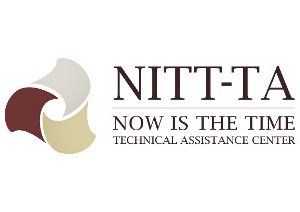1/21/16 – Project Update
During the first year of the NITT grant, most Healthy Transitions and Project AWARE sites were consumed by planning and building their infrastructure. Now, as both state and local partners begin the work of implementation, the need for adaptive leadership is apparent. Implementation science names leadership as one of the three implementation drivers, along with competency and organizational drivers.
In order to support state and local leaders, CM has been building a knowledge base, and products related to adaptive leadership. Additionally we have been growing our skills as facilitators, trainers, and coaches to adaptive leaders. The dynamic and multifaceted context for systems work inherently requires a collaborative and complex response. That response could include adapting to new thinking on concepts or partnership development, appropriate services in communities with shifting demographics, and addressing the complex social determinants of health in diverse communities. We recognize that being able to identify adaptive leadership challenges is hard work and requires increased awareness, knowledge, and skills. Leaders of adaptive change need to be able to articulate a vision, engage others to make it a shared vision, and define their role in the work.
CM is applying the adaptive leadership approach with many of their NITT grantees, as they identify the adaptive aspects of youth engagement, community collaboration, and integration of cultural and linguistic competence across multiple environments. We are creating tools so that Project Directors can support local leaders to increase their capacity to do adaptive work at the community level. Encouraging leaders to acknowledge the risk and reward of taking an adaptive approach is new.
2/25/15 – Project Update
The Now is the Time Technical Assistance (NITT-TA) Center is the national technical assistance center for states, communities, and local education agencies funded under the Now is the Time (NITT) initiative. The NITT-TA Center will provide Technical Assistance for NITT grant programs funded through the Substance Abuse and Mental Health Services Administration (SAMHSA):
- The NITT Project AWARE State Educational Agency Grant Program (AWARE-SEA) is designed to build and expand the capacity of state educational agencies (SEAs) to increase awareness of mental health issues among school-aged youth; provide training for school personnel and other adults who interact with school-aged youth to detect and respond to mental health issues in children and young adults; and connect children, youth, and families who may experience behavioral health issues with appropriate services.
- The purpose of the NITT Healthy Transitions (NITT-HT) is to improve access to treatment and support services for youth and young adults ages 16 – 25 that either have, or are at risk of developing a serious mental health condition. This will be accomplished by increasing awareness, screening and detection, outreach and engagement, referrals to treatment, coordination of care and evidence-informed treatment for this age group.
The NITT-TA Center is composed of four partners with complementary areas of expertise: the Center for Applied Research Solutions (CARS), the University of South Florida, WestEd, and Change Matrix.
The NITT-TA Center supports the HT and PA grantees through tailored training and technical assistance to: 1) provide critical information on what works to leaders in the field and 2) assist them to use this information creatively to transform mental health and substance abuse service delivery systems. Change Matrix LLC serves as the Cultural Competence and Collaboration coaches to the grantees.
Each grantee is assigned a TTA Specialist Team consisting of one Technical Assistance Liaison (TAL) and one Cultural Competence and Collaboration (CCC) Coach. The TTA Specialist Team provides direct TTA services to grantees, and coordinate specialized TTA through subject matter experts as needed. The TTA Specialist Team initiates and schedules initial and follow-up consultation calls, engages in TTA Plan development, conducts site visits, identifies and develops resources, engages in site-specific consultation, and assists in identifying and implementing Evidence-Based principles.
Based on initial calls with HT grantees, what stands out, as a need, is the capacity of grantees to sustain their collaborative and this is even more challenging when leadership potentially changes every few years. For many of the PA grantees ensuring the engagement of diverse stakeholders can be a challenge, particularly youth and young adults. For many of the local grantees, ensuring effective collaboration requires assistance with identifying ways to bring consensus to vision and goals, clarifying assumptions and perspectives and clarifying internal and external communication protocols.




